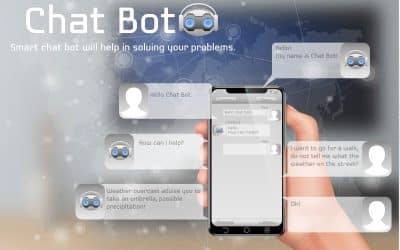Artificial Intelligence (AI) received much attention, principally because of the phenomenal growth of ChatGPT and its staggering number of users. AI applications like ChatGPT and Gemini were popular with the public. Everyone is captivated by AI in the Generative AI era, from kids to CEOs. The technology is not new and has witnessed incredible improvements ranging from basic automated jobs to sophisticated problem-solving abilities. It can accomplish nearly everything.
The speed of Generative AI is developing; it’s now an obligation to every CEO and executive to comprehend its significance for their companies. It is difficult to distinguish the experts’ voices amid all the noise. In the case of AI and SaaS Development, is that real or speculation? What risks could these new technologies bring? What product or business methods will be most successful?
This blog explains the hype surrounding Generative AI and how it has been made a reality. Therefore, you should find out how you can benefit from the power of AI in your company.
The State of AI In SaaS: Understanding The Current Landscape
The potential advantages of using AI in SaaS applications are well-known. However, the market is beginning to accept AI, and many businesses are still determining the best way to incorporate it into their products. Despite this, AI is being incorporated into SaaS services in different ways. One common method involves machine learning algorithms that analyze massive amounts of data to make forecasts and decisions. In Salesforce’s case, for instance, Einstein AI uses machine learning algorithms to assist sales reps in discovering prospects and providing personalized suggestions.
Another approach AI can utilize for SaaS is natural language processing (NLP) tech. NLP helps computers understand and interpret human languages, and it is functional in SaaS applications like chatbots and virtual assistants.
How AI Can Transform The SaaS Sector
Artificial technology (AI) is transforming various industries, making them more effective, flexible, and adaptable. AI has the potential to change business practices, open up new possibilities, and place the company ahead of its closest rivals. It’s also continually pushing the boundaries of possibilities in various fields. Whether AI technology like machine learning (ML), natural language processing (NLP), or computer vision is integrated into SaaS platforms. SaaS Development Services brings a new innovative technology dimension even in basic business workflows.
Personalized Recommendations
AI ensures personalization. This is why your software has no more standard user experiences. This is precisely the kind of experience that customers today want. A majority of buyers tend to buy from companies that offer customized services. When your customers log in to the SaaS platform, you will greet them with a list of recommendations specifically tailored to their use patterns and preferences. This AI-driven personalization boosts the user experience overall, helping strengthen the connections between users and your SaaS image.
Furthermore, when it comes to marketing, this cutting-edge technology can analyze user data to give a complete analysis of user preferences and behaviors. This technology provides valuable insights, allowing SaaS marketers to develop targeted and personal marketing strategies. Furthermore, AI segments users based on their interests and behavior patterns. This ensures the message is resonant with its target viewers. Through AI-powered chatbots as well as virtual assistants, SaaS businesses can offer personal customer assistance 24/7. The AI-powered tools can analyze customer queries, provide pertinent solutions, and anticipate future requirements. It’s a seamless and efficient user experience that builds loyalty.
Automating Business Functions
Why must you do tedious tasks when AI can do all the heavy lifting? A variety of SaaS businesses can gain from AI automation. In the above example, AI can manage customer inquiries and help tickets. It provides personalized customer experiences and quick responses throughout the day. This implies that SaaS businesses can serve clients more effectively without increasing the number of employees they employ.
For SaaS sales reps, AI-powered email-locating tools can prove extremely helpful. This tool’s intelligent algorithm instantly identifies and collects the email addresses of prospective prospects, reducing the time spent manually searching and verifying. By automating this vital stage of the sales process, the human brain can focus on developing relationships and negotiating transactions.
AI can also automate data gathering and analysis for the marketing departments responsible for SaaS content production. As mentioned earlier, this is more than just about customer data that is utilized to develop custom-made marketing-related content. Other kinds of online data can be used to make high-quality material. Machine learning algorithms allow SaaS firms to anticipate customer behavior and improve pricing strategies. They can also pinpoint selling opportunities that could take time and be vulnerable to human error when executed by hand.
Enhancing Security
Cybersecurity is a major priority for companies of all sizes, especially for SaaS firms offering cloud-based solutions. Your clients entrust you with important information, including addresses, names, and credit card numbers. Safeguarding sensitive data is also required by law, and with cybercriminals at every turn and in every corner, it’s just normal to be aware.
Fortunately, SaaS AI is a powerful aid in boosting security while protecting essential data from constantly evolving security risks. AI-powered security systems continually monitor network activity, identifying unusual behavior and stopping security breaches before they occur. Artificial intelligence detects unusual login attempts or identifies malicious email messages and sends warnings for suspicious login attempts to be just one step before cybercriminals.
Furthermore, AI algorithms can identify abnormal user behavior by looking at patterns and differences from regular customer interaction within a SaaS Application Development. Examples of abnormal user behavior include spikes in access to data or unauthorized attempts to access restricted areas within the application. Artificial intelligence sends real-time alarms to alert administrators if such behavior is identified. These alerts help administrators look into security issues immediately.
Reducing Cost
We’ve mentioned before that artificial intelligence-driven automation reduces the need for human resources, reducing labor costs. However, the benefits of cost savings do not stop there. AI is able to precisely predict project timelines, resource requirements, and potential bottlenecks. It lets you allocate your SaaS staff efficiently so that it doesn’t require extra staff for effectiveness and spending more.
Using AI to gain valuable insight allows you to adapt your SaaS marketing and sales messages to appeal to an appropriate audience by delivering an appropriate message at the most appropriate moment. There’s no need to waste funds on experiments. Instead, you’ll be able to make educated decisions and put your funds on initiatives that are likely to boost SaaS performance.
Additionally, AI can help you improve existing features and create new functions. AI examines patterns of usage customer feedback, usage patterns, and interaction with customers, which will help you guide the direction of your SaaS development and enhancement initiatives. This means you won’t need to pay to test features in your product that aren’t popular with your targeted customers.
Better Predictive Analytics
SaaS firms can utilize AI in predictive analytics to discover customer behavior patterns, market trends, and business performance. By analyzing large data sets using machine-learning algorithmic techniques, AI can help SaaS enterprises make better decisions based on data, optimize operations, and find new growth opportunities. Smaller eCommerce firms can utilize predictive analytics to determine customers’ purchase patterns. This allows them to understand the buyer on a much more personal scale.
Advancements In NLP And Its Influence The Creation Of SaaS Products
Recent advancements in NLP may revolutionize how we access information for work purposes. The shift in this direction is caused by LLMs, which are also known as “Large Language Models,” like those developed in the work of OpenAI (GPT4), Meta (Llama), and Anthropic (Claude). They have revolutionized the realm of NLP by dramatically reducing tasks related to language, like format, summarization, and translating.
When you have to look up information on your job, you usually launch an application that allows you to search for simple keywords and then go through a listing of results. Thanks to NLP, it’s currently possible to make a query for an organization’s AI search tool and receive an individual response based on aspects like your job title and your level of seniority and location. It allows you to locate precisely the information you require significantly faster. Also, it’s causing changes in the user experience (UX) of various SaaS applications.
Intersection Of AI And Its Impact On The Development Of SaaS
One of the main obstacles for companies considering AI is security concerns. These concerns manifest in two different ways: how data is shared with the outside world and how data is used within the company.
If a company decides to implement the AI SaaS product, it must be able to trust that the data it collects is not shared with third-party companies or utilized to train LLMs. Also, the company must be sure that the data it is sharing internally will be accessible to employees authorized to view the data. The interplay between AI with security and AI is more influential in how AI can be used at work. Companies with robust security protocols will find it challenging to have their offerings accepted by the business.
Future Of Generative AI: From Hype To Reality
Generative AI will create excitement for every SaaS Application Development Company on every level. ChatGPT, Gemini, Claude, and other software can create game-changing opportunities; however, understanding the potential of these tools is the initial step toward taking advantage of their capabilities. Naturally, you wait to require this tool, but you should be prepared for any that AI can bring.
These are the ways you can utilize the power of generative AI to change your marketing plans.
Personalize And Automate Your Content
Generative AI can assist you in creating, personalizing, and automating the various elements of your business. It will help you create automated marketing templates, social media posts, videos, and pictures. Additionally, it helps create personalized content for your customers and suggestions by studying customer information. This improves customer satisfaction and engagement. Generative AI could create personalized ads that target particular users. It can also aid in planning social media posts to minimize timing and focus on specific users.
Personalize Your Customer’s Experience
Chatbots powered by AI, with generative abilities, facilitate natural, contextually aware conversations with customers. They offer personalized support and recommendations that result in greater customer satisfaction. Generative AI can be utilized to create relevant, customized information that is a hit with the intended target audience. It will help you enhance customer interactions and communication. You could use generative AI to analyze customers’ purchases and browsing habits and design a personalized shopping experience.
Visualize Your Data (Visual Storytelling)
Through generative AI, you can grab your customers’ attention and effectively communicate your business message. Technology makes complicated information more accessible, allowing the audience to understand patterns, trends, and information at a glance. How? Generative AI allows you to create visually appealing resources, including videos and photos, at size and with far fewer interactions. Artificially generated visuals will impress your clients, from creating customized visuals targeted to specific groups to engaging visually-based experiences.
Automate and Optimize Your Marketing
You can dynamically adjust your marketing strategy by using AI-powered systems that respond to changing market conditions and customer behavior. AI can also assist in developing and implementing creative marketing plans and strategies. In addition, AI generative can coordinate with multiple marketing channels and facilitate seamless integration. Generative AI may improve pricing, product promotion, or service using market research to boost customer service and revenue overall.
Define Your Future With Predictive Analysis
It is possible to use machine learning AI to forecast patterns in the market, customer behavior, and business outcomes. It analyzes historical data to predict future results by allowing you to explore the market and customer interactions. Additionally, it helps you identify the potential threats and opportunities to your company. In addition, Artificial Intelligence (AI) generative will help you improve the supply chain and anticipate future requirements for your company. Generative AI could help detect fraud or obstacles to your business strategy.
Ethics Considerations To Consider When Integrating AI Technology In SaaS
When using AI for SaaS products, it is essential to remember that AI does not substitute human ingenuity or reasoning. Ultimately, LLM’s output can only depend on the data human beings have given it. When using AI for high-risk situations like making hiring decisions or answering crucial client questions, it’s vital to protect against biases as well as errors that could be present in the information. The best method to achieve this is by having a human involved to help refine, verify, and increase the quality of AI’s performance.
From Buzzword To Reality: AI’s Impact On SaaS
The future of AI within SaaS is full of promise! Incorporating AI technology in SaaS services has revolutionized the business, increasing customer experience, enhancing decision-making ability, and simplifying operations. However, this is only the start. As AI firms grow and prosper and expand, we’re likely to witness more advanced technologies that are set to revolutionize how firms function. SaaS firms must know AI’s ethical issues and possible dangers, like algorithms’ biases and job displacement. To ensure this technology is utilized responsibly and serves society’s public betterment.
What lies ahead for AI within SaaS has enormous potential for growth and innovation. If businesses embrace AI-powered technologies, they’ll be more productive, efficient, and competitive in the international market. It’s a thrilling moment to join the SaaS business, and with AI’s capabilities in our grasp, it is truly endless.
Conclusion
The field of SaaS is constantly changing, and the most successful startup companies do not hesitate to embrace innovative technologies that can take their business to the next level. As ML and AI continue to advance, their application and availability increase and the possibilities of optimization and personalization expand exponentially.
Human-machine relationships are evolving every day. Generative AI specifically transforms decision-making and strategies. Business leaders and executives should be able to adapt immediately, as technology is evolving in a revolutionary manner. It is not an opportunity to beat your competitors; rather, try, test, learn, and adapt over time.
If you adopt AI and machine learning, you can give your clients tailored services that will keep them returning for more. Don’t be a slave to shaky software and unsatisfactory service. With AI on your side, your business can achieve high efficiency and profits, as well as the added benefit of cutting expenses, increasing efficiency, and fostering innovation.











